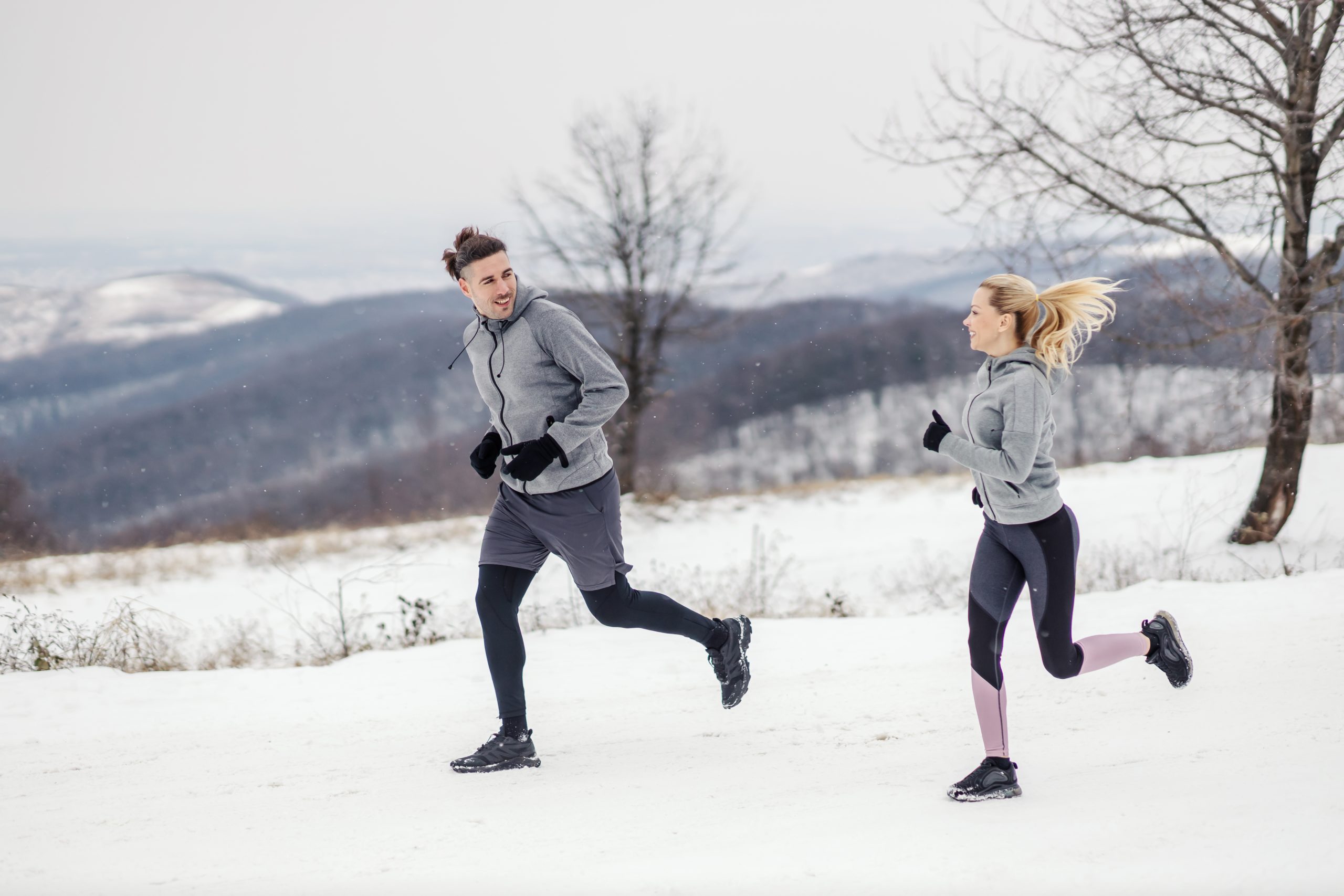Winter Habits to Help You Through the Dark Days with Success
Winter can be a tough time to stay on track with your health and fitness goals. Long hours of darkness, the holidays, and the lack of any races on the horizon all make it challenging to stay motivated. However, it can also be a great time to focus on some non-racing health goals and build some healthy winter habits that go beyond your performance.
Written by Becca Blumberg
Edited by Pavlína Marek
Get a good night’s sleep
It all starts with a good night’s sleep. Lack of sleep is its own form of stress, one which can lead to unwanted weight gain and worsen chronic conditions. Getting too little sleep also makes it harder to recover from tough training sessions. Every BODY is different, but we generally need 7-9 hrs of QUALITY sleep a night. This means you should wake up feeling rested.
When you work on your winter habits, start with your sleep schedule. Winter can be the perfect time to focus on that thanks to the long dark nights that encourage us to get to bed earlier and lull us to sleep. Thanks to a generally lower training load, many of us also don’t have the pressure of waking up pre-dawn to get our training in before work. The cold temperatures can work in our favor as well, as a cooling body is one trigger for sleep.
Try to go to sleep and wake up at the same time EVERY time. Limit screen time during the last 30-60 minutes before bed, instead read, journal, meditate, pray, or build another soothing bedtime routine to transition you to sleep.
Make your own meals
Cooking at home is an important way to take charge of your nutrition. When we make our own food, we tend to use less added sugar, salt, and fat. We also usually serve ourselves more realistic portions, which can help us tune into hunger and fullness cues.
However, cooking at home is a habit, and as such, it takes time to build. In winter, we tend to spend more time at home without the pressures of the racing season. We may also find ourselves craving more nutrient-dense foods after the decadent holiday season. This makes winter the perfect time to find those new go-to recipes that your family loves and get into a routine of shopping and cooking.
Practice mindful eating
Mindful eating is the act of eating with intention and attention. It’s based on the Buddhist practice of mindful meals. It means tuning in, both internally and externally. When we eat mindfully, we learn to listen to our hunger and fullness. We can then trust our bodies to guide us on when and how much we should eat.
To pay proper attention to our food, we also need to create a pleasant environment to eat in. Distractions such as TV, email, and social media are not allowed during this time so we can use all five senses to experience our food. Good conversation or music can take their place. This creates a deeper eating experience that helps you feel true satisfaction from your food.
Ultimately, this can lead to greater attunement to your body’s signals and greater trust in what it tells you about your needs. Building our winter habits encourages us to slow down and turn inward, making winter an ideal time to build this practice. Try one mindful meal a week: intentionally slow down, tune in, and savor the experience.
Stay hydrated
It might seem counterintuitive to think about hydration when it’s so cold outside. Your training sessions may be relatively short, and make you feel like there isn’t much you need to do in terms of hydration. However, it is just as important, if not more so, to stay hydrated in the winter.
Heaters pump hot, dry air that tends to be very dehydrating. On top of that, we tend to drink less without the same strong thirst cues (or noticeable sweat) that remind us to drink during the summer months. Additionally, indoor training sessions on the treadmill or cross-training on a bike, rower, or other equipment can be more dehydrating than outdoor training because of the dry indoor air. What can you do about it?
Build a habit of drinking plain water regularly throughout the day (about half your body weight in ounces for most of us). Also make sure that if you are doing base training or training for a spring race, you hydrate just as you would when running outside.
Eat vitamin D–rich foods
Vitamin D is important for keeping good bone health, immunity, mood, and many other important functions. Almost half of all adults in the United States have low levels of this important vitamin. This is worse in the winter, with fewer hours of sun at a lower angle. We also tend to spend more time indoors to avoid the cold. Despite being called the “sunshine vitamin,” we can actually get only about half of the vitamin D we need from the sun. The rest has to come from our diet, even more so in the winter.
Good sources of vitamin D include fortified milk (dairy or plant), salmon and other fatty fish, whole eggs (it’s found in the yolk), mushrooms, and fortified cereals. Keep in mind that Vitamin D is fat-soluble, so make sure to include healthy fats in your diet to aid in its absorption. Despite your best efforts, you may still need to take a supplement. Talk with your primary healthcare provider about testing your Vitamin D levels. Don’t hesitate to talk to a dietitian about dietary changes and recommended supplement doses if you are concerned.
When you build your winter habits—and habits in general—pick one habit to focus on at a time. Once you feel solid, add the next one. Before you know it, you’ll be training and racing stronger than you ever have! Questions? Reach out to beccablumberg(at)gmail.com.


